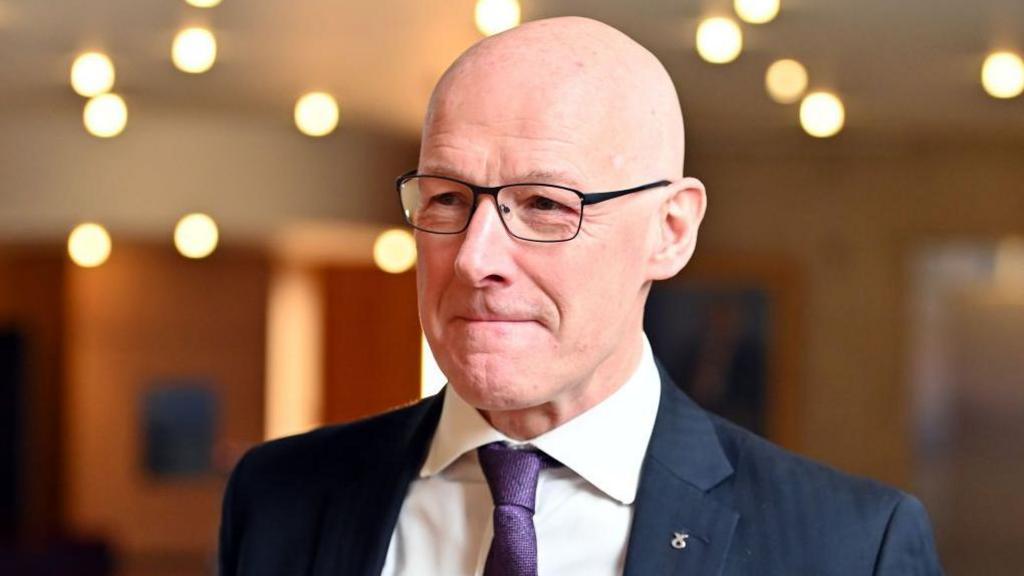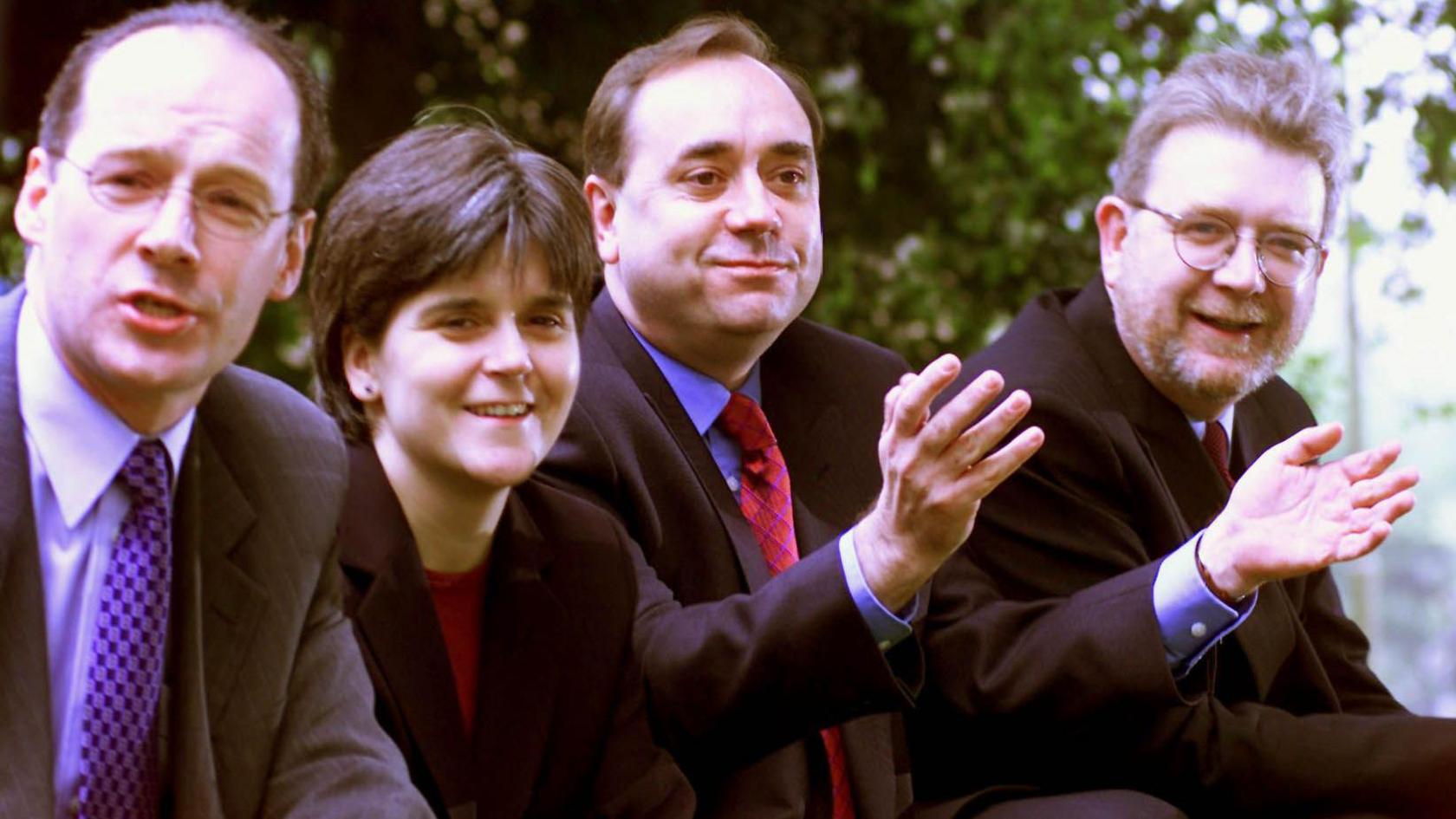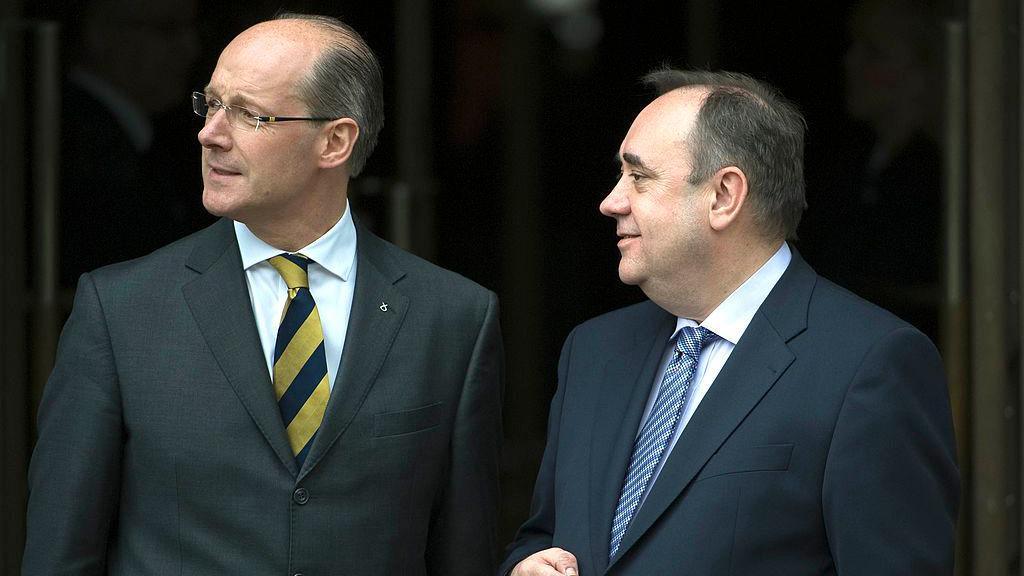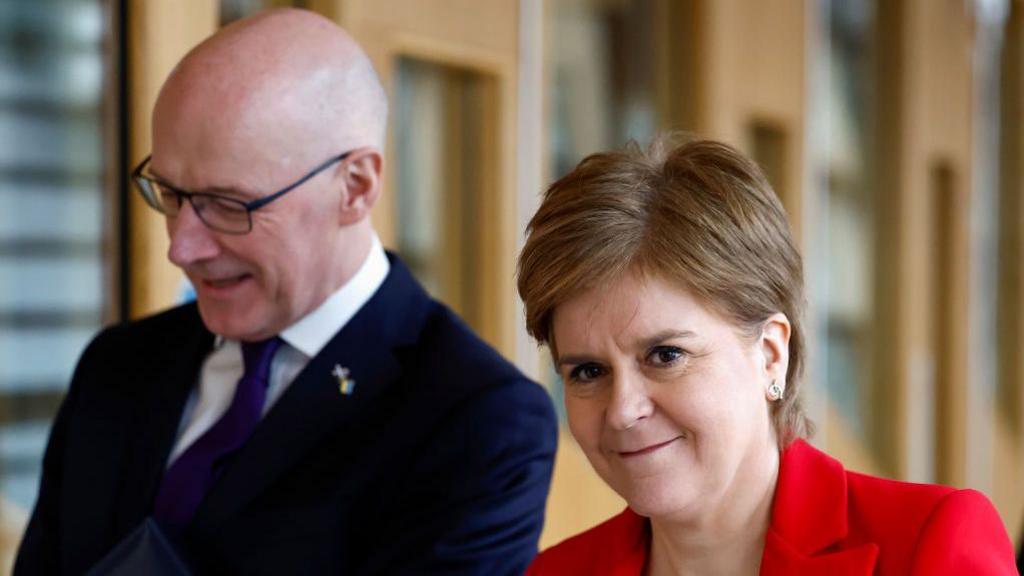Who is John Swinney, Scotland's new first minister?

- Published
John Swinney has become Scotland's seventh first minister after securing the SNP leadership.
It is his second turn leading the party and marks a remarkable turn-around 20 years after he stood down from a difficult period in the top seat.
For many in the SNP - particularly those who have been in the movement for a long time - John Swinney embodies what they think of as core SNP values.
They see him as trustworthy, hard-working and loyal. He is a favourite at the party conference and his admirers recognise in him a burning desire for independence.
Swinney looks set to be first minister as Forbes backs him
- Published2 May 2024
Forbes and Swinney hold talks about SNP leadership
- Published1 May 2024
Humza Yousaf quits as Scotland's first minister
- Published30 April 2024
Edinburgh born and bred, the 60-year-old has something of the traditional Scottish banker about him, and indeed he spent five years working for Scottish Amicable Life Assurance before winning the Tayside North seat at Westminster in 1997.
But by then he was already a party veteran, having joined in 1979 aged just 15.
He ran the SNP's youth wing before climbing through senior roles in the national party, becoming its secretary at 22.
Mr Swinney is full of contradictions. He rose rapidly among the fiery young party activists yet there is something quite old-fashioned about him.
His cautious strain of nationalism was forged in the era of SNP leader Gordon Wilson, who headed the party from 1979 to 1990.
Yet he became a close and trusted colleague of the next leader, Alex Salmond, who had emerged from the more radical wing of the party.
Through his time at Westminster and then at Holyrood from 1999, he was a trusted lieutenant to Mr Salmond and so it seemed natural that he should succeed him in 2000, when the leader stood down.

John Swinney was among the 1999 intake of SNP MSPs, alongside future cabinet colleagues Nicola Sturgeon, Alex Salmond and Michael Russell
His own time as leader, however, was not seen as a success. The early years of devolution were a surprisingly unhappy time for the party.
The Labour-Liberal Democrat coalition seemed to quell the nationalists. Seats were lost in the 2003 Holyrood election and there was a disappointing result in the 2004 European poll.
Towards the end of his four years in the top job, it was clear his time as leader was over.
His party colleague Michael Russell borrowed from tales of Conservative fixers in grey suits to warn that Mr Swinney was facing a visit from "the men in grey kilts".
Mr Swinney was furious, and as he stood down launched a scathing attack on Mr Russell and other senior members of his party, blaming them for briefing against him and creating a "fog of media speculation" about his position.
Those people "should know better'" than to "import the grubby concepts from the Conservatives," he said.
"Our leader is democratically elected and, once democratically elected, should be supported by every single member of the party," he added.

Mr Swinney would go on to serve as finance secretary under Mr Salmond
Yet his ability to adapt and fit in, get on with the job and put duty first served him well when, after a spell on the back benches, he joined Mr Salmond's first government as finance secretary.
It was a job he would fill for the next nine years, adding the title deputy first minister to his office door when Nicola Sturgeon succeeded Alex Salmond in 2014.
He remained her loyal deputy, moving to take over the education brief in 2016.
His time in office was not without its problems. He was particularly criticised for falling standards in science and mathematics and survived two votes of no confidence while in the role, one in 2020 and the other a year later.
Just two months after that second vote he was moved to head the Scottish government's response to Covid, while remaining Ms Sturgeon's deputy.

Mr Swinney was close to First Minister Nicola Sturgeon, serving as her deputy for nine years
And that had looked like being his final job in government. Just after Ms Sturgeon stood down in February 2023, he announced that he too was going, returning to the back benches after 16 years as a cabinet secretary.
He remains liked and respected by both colleagues and political opponents.
But remember those contradictions.
Polite and moderate in person - and much funnier than on camera - Mr Swinney is also a ferocious parliamentary performer and has been a serious political operator for almost 40 years.
As he announced his candidacy he spoke of uniting the party for independence.
Almost his first act was to say there would be a place for Kate Forbes - who had considered a rival bid - in his government and he denied he would be a "caretaker" leader, saying he was in it to lead the SNP through the next Westminster and Holyrood elections.
Almost 20 years after standing down, John Swinney is stepping up once again.